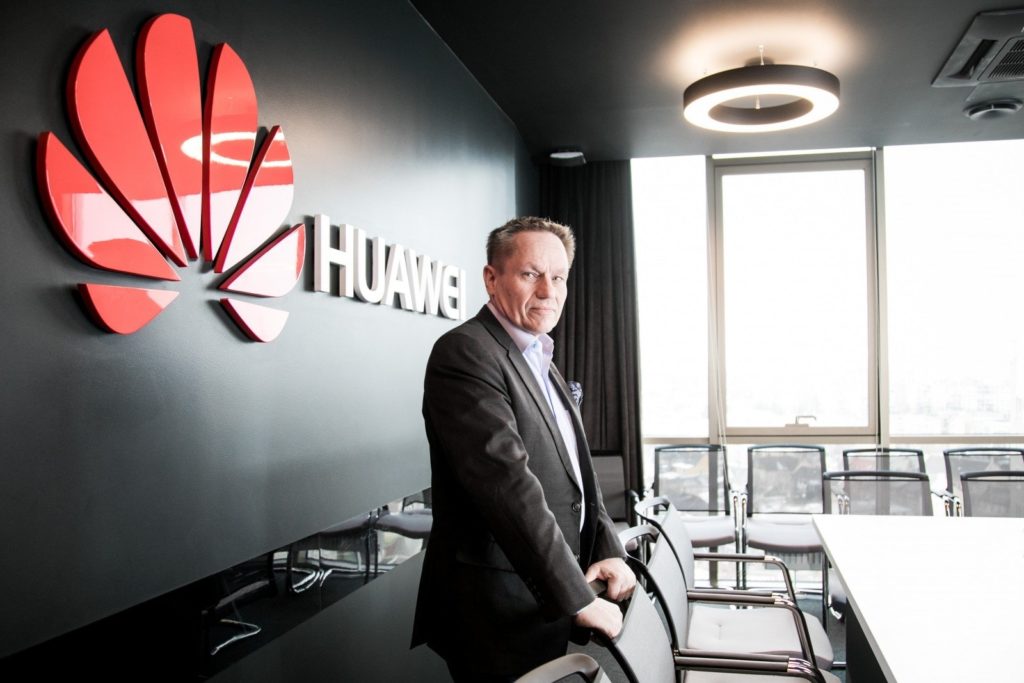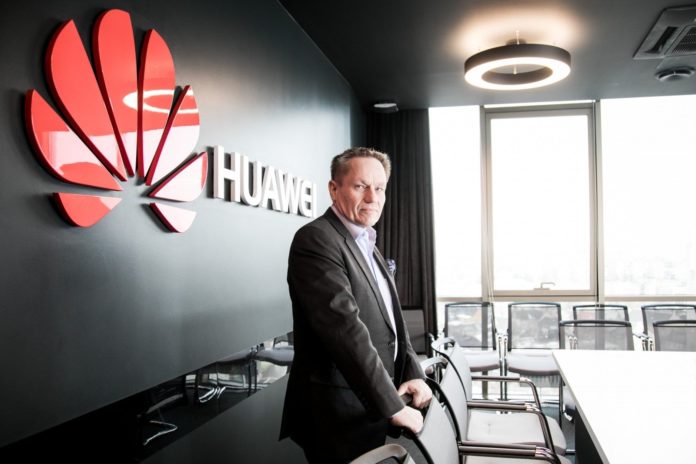Huawei Global Cybersecurity VP Asserts Security Leadership, Impeccable Record at Kenya Summit
Huawei’s Global Vice President for Cybersecurity and Privacy spoke today at an ISACA Kenya online conference to highlight Huawei’s leadership, expertise and track record on cybersecurity and privacy whilst also explaining how secure communications networks are based on independently verifiable technical standards.
Noting that communications networks are owned, managed and controlled by telecommunications companies, not equipment vendors, Mika also directly addressed head-on the unsubstantiated charges of espionage and theft of personal data that have been put out there for political reasons, pointing out the irony that the U.S. CLOUD Act allows their governmental entities to access data across borders.

He countered these by introducing Huawei’s leading practices in cybersecurity alongside a proven track record, and explaining how secure 5G and Internet of Things (IoT) are based on technologies and standards. Lauhde explained that Huawei has never had any major security incidents and that Huawei believes in the importance of standards in cybersecurity: “trust needs to be based on facts, facts need to be verifiable, and verification needs to be based on common standards.”
Mika explained that Huawei has established multiple management systems and incorporated internationally recognized cyber security certification standards and requirements into product R&D with third-party labs to certify Huawei products, noting that “we have already obtained over 300 certifications and in May became the first vendor to pass the NESAS audit for 5G wireless and core network equipment. We work closely with government and telco customers who have been inspecting our equipment and using it for decades—we are very transparent with them.”
Mika Lauhde’s speech explained how 5G is much more secure than 4G and earlier technologies such as 3G and 2G; in fact security is one of the important benefits of 5G that is becoming more important as online threats increase, alongside other 5G benefits of speed, capacity and latency.
Mika provided a technical explanation of the benefits of 5G from a security and privacy perspective and explained how this was through intentional decisions into the design of 5G standards: “5G standards address risks in 17 security areas making networks and information more secure, protecting user’s privacy as well as the integrity of networks through improved security architecture, authentication, key management, radio access network (RAN) security, cryptographic algorithms and much more.”
He also explained how 5G has some different attributes that improve security, particularly that of network slicing, where a network can be tweaked for different users, and keep the data flowing through those slices separate, thus those using 5G for gaming or streaming would be on a different slice compared to those using it for smart meters, for business use, or for transmitting more sensitive health data. Furthermore algorithms used for encrypting information transmitted on 5G networks are designed so that even quantum computers of the future won’t be able to crack them.
Huawei Trains students for next generation technology 5G
Finally, referencing Huawei Rotating Chairman Guo Ping’s previous statement in 2019, Mika concluded saying that Huawei is the most audited and inspected company in the industry and that no other equipment provider has undergone the scrutiny that Huawei has, so: “for the greatest security, choose Huawei”.
More information on Huawei Cybersecurity: Trust Center including Huawei’s 2019 5G Security white paper describing the industry standards, Huawei’s approaches, and joint efforts of industry partners. 5G Cyber Security
Mika Lauhde Bio:
As Vice-President Cyber Security & Privacy, Global Public Affairs, Mika leads the government relations team to understand and provide insight of governmental cyber security and privacy policy, technology, context and trends.
His job entails analysing the big picture when it comes to Cyber Security and its requirements globally, to develop strategies for network security management, stakeholder relations, government solutions and network security risks management.
Prior joining Huawei he worked in SSH Communications Security as VP, Government Relations and Business Development. He engaged governments, industry partners, and product- and service users on important security and privacy issues such as critical infrastructure protection, compliancy, software assurance, risk and identity management. Before that, whilst working at Nokia Corporation, Mika Lauhde headed Business Security and Continuity, where he was accountable of Government Relations in Cybersecurity and Privacy area, Criminal compliancy and forensic, Nokia wide crisis management as well terminal and manufacturing related security tool manufacturing.
Mika has an extensive experience with cyber security related topics and governmental institutions both in Europe and USA. Currently he is a Member of ENISA (European Network and Information Security Agency) Permanent Stakeholder Group and Europol Cyber security and privacy adviser as well Senior Fellow, Maastricht University, Centre of Data protection and Cyber Security (2017-). He has also been a member of Leuven University European Crypto Task Force (2014 – 2017) and a Founding Member and Board Member of TDL (Trust in Digital Life) (2010 – 2013 ) (Part of the European Cybersecurity Strategy plan 2013).











